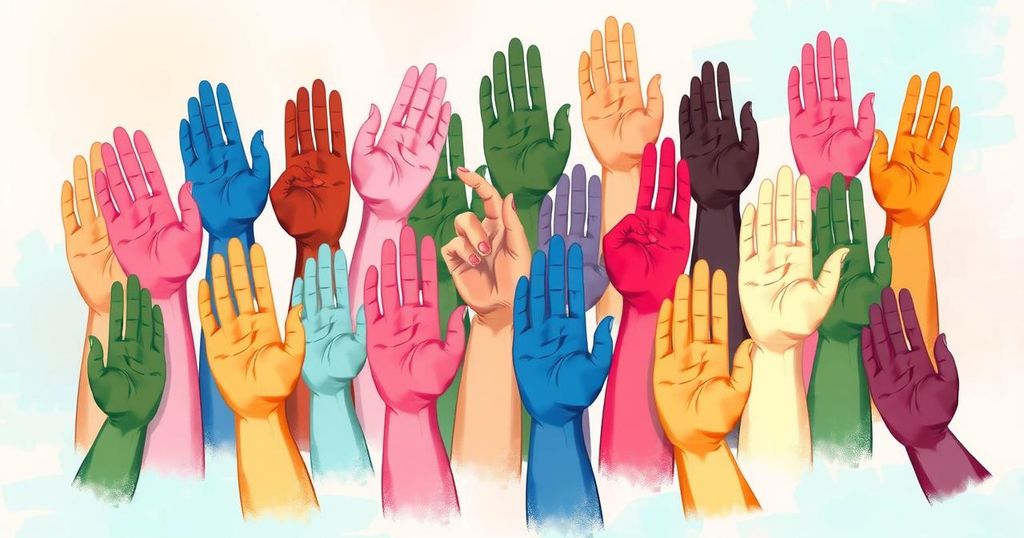The Namibian deaf community is urging the new government to recognize sign language as a national language to foster inclusivity. The initiative, supported by leaders from the Namibian National Association of the Deaf, aims to address societal inequalities. A parliamentary committee has already tabled recommendations for the inclusion of sign language in official communications and education.
Namibia’s deaf community is advocating for the new government to recognize sign language as a national language to promote inclusivity. Linekela Nanyeni, the director of the Namibian National Association of the Deaf (NNAD), emphasized that without such recognition, societal inequalities will persist. He expressed hope that the parliamentary committee on constitutional and legal affairs will support this initiative, which could be a significant milestone for both Namibian and global deaf communities.
During a parliamentary session, the committee presented a report advocating for the acknowledgment of Namibian sign language as a national language and the appointment of a sign language interpreter for live debates. Committee chairperson Kletus Karondo noted that sign language has been incorporated into the assembly’s official languages. In line with the United Nations Convention on the Rights of Persons with Disabilities, he affirmed that communication is a fundamental human right that should be respected.
Recommendations concerning this motion have been directed to various ministries, including education and labor, as well as the National Assembly. The motion was initially proposed by Deputy Minister for Disability Affairs Alexia Manombe-Ncube in 2022 following a petition from the NNAD. She highlighted the importance of learning sign language in families, especially as many deaf children are born into households without deaf individuals.
Manombe-Ncube further insisted that educational facilities must incorporate sign language resources and support to facilitate learning, asserting that failure to teach sign language deprives many Namibians of effective communication across numerous societal spheres, including homes and educational institutions.
Overall, the push for sign language recognition reflects a critical movement towards inclusivity and equal rights for the deaf community in Namibia, emphasizing the need for systemic support and legislative changes to enhance communication and societal participation for all citizens.
The call from Namibia’s deaf community for sign language recognition as a national language addresses significant societal inequalities. Through the advocacy of leaders like Linekela Nanyeni and Alexia Manombe-Ncube, there is a growing momentum towards inclusivity and effective communication for the deaf community. Legislative support from the parliamentary committee, alongside educational reforms, can lead to a more equitable society where all individuals can express themselves fully.
Original Source: www.namibian.com.na






